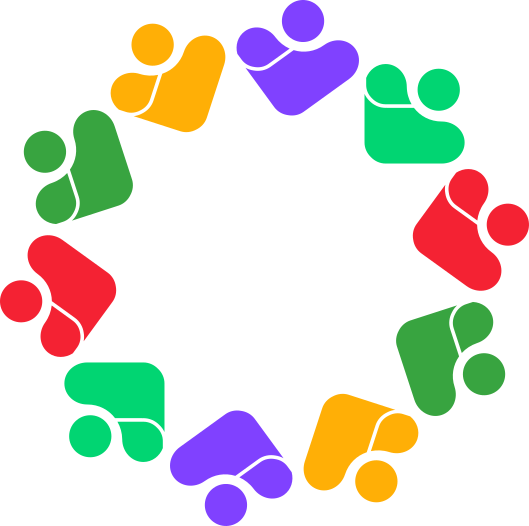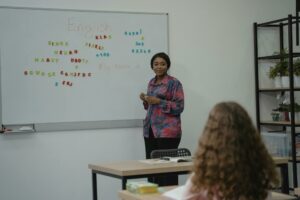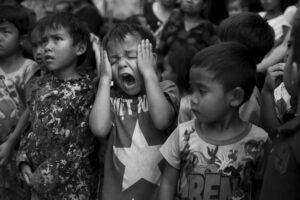In the vibrant tapestry of South Africa, the future lies in the hands of its youth. The nation’s young people, often referred to as “youth,” face a unique set of challenges and opportunities as they navigate the path towards their dreams and aspirations. In this blog, we will delve into the problems confronting South African youth, define who qualifies as a youth in South Africa, explore the age range that encompasses this demographic, and shed light on the youth population in the country. Moreover, we aim to enlighten the South African youth about the plethora of educational opportunities available to them, emphasizing the philosophy of fostering student independence and freedom of choice.
The Challenges Faced by South African Youth
South Africa, like many nations, has its share of challenges that impact its youth. These include:
Educational Inequities: The legacy of apartheid still looms large, with educational disparities persisting. Many young South Africans face limited access to quality education, leaving them ill-equipped to compete on a global scale.
Unemployment: High levels of unemployment among youth remain a pressing issue. Many young people struggle to secure stable employment opportunities, despite their aspirations and qualifications.
Economic Inequality: South Africa’s youth grapple with stark economic disparities. The gap between the affluent and the marginalised remains substantial, hindering opportunities for personal and professional growth.
Crime and Safety: Crime rates, including violent crime, can pose a significant threat to the well-being of South African youth, limiting their freedom to explore educational opportunities outside their immediate surroundings.
Mental Health: The pressures of a rapidly changing society can take a toll on the mental health of South African youth. Access to mental health services is often limited, exacerbating these issues.
Who Qualifies as Youth in South Africa?
In South Africa, the term “youth” is typically used to describe individuals between the ages of 15 and 35. This definition aligns with the National Youth Policy, which recognizes this age group as the segment of the population requiring specific attention and support to address their unique challenges and needs. This age range encompasses a diverse group of individuals with varying experiences, backgrounds, and aspirations
The Youth Population in South Africa
As of September 2022, South Africa’s youth population was estimated to be approximately 21.1 million individuals, making up a significant portion of the country’s total population. It is important to note that demographics may have shifted slightly since then, but the youth continue to play a pivotal role in shaping the nation’s future.
Educational Opportunities for South African Youth
Now, let’s turn our attention to the heart of this blog: educational opportunities for South African youth. Education is a powerful tool that can help overcome many of the challenges faced by young people in the country. Here are some of the pathways available to them:
- Formal Education: South Africa offers a comprehensive formal education system, from primary school to higher education institutions. Students can pursue a wide range of subjects and qualifications, including diplomas, degrees, and vocational courses.
- TVET Colleges: Technical and Vocational Education and Training (TVET) colleges provide practical skills and knowledge to prepare students for various trades and professions. These institutions offer courses in fields such as engineering, hospitality, and business.
- Distance Learning: For those who face geographical or financial barriers, distance learning and online education have become viable options. Institutions like the University Of South Africa (UNISA) offer a range of programs that can be accessed remotely.
- Scholarships and Bursaries: Numerous organizations and government departments offer scholarships and bursaries to financially disadvantaged youth, enabling them to pursue their education without the burden of excessive debt.
- Youth Development Programs: Various youth development organizations and NGOs operate in South Africa, providing mentorship, life skills training, and educational support to young people.
- Entrepreneurship and Start-ups: Various youth development organizations and NGOs operate in South Africa, providing mentorship, life skills training, and educational support to young people.
- Art and Culture: For those with a passion for the arts, South Africa’s vibrant cultural scene offers opportunities in music, dance, theatre, and visual arts. Institutions like the National School of the Arts nurture young talent in these fields.
More information about the opportunities for South African youth can be found here.
Fostering Independence and Freedom of Choice
One of the key principles we advocate for is fostering independence and freedom of choice among South African youth. Teachers can also play a vital role in helping youth make informed decisions about the educational opportunities available to them. Here is a reader about how teachers can play a role in shaping the path of youth.
Here are some ways to empower young people to make informed decisions about their education and future.
- Career Guidance: Access to career guidance services can help youth explore their interests and strengths, enabling them to make informed decisions about their educational and career paths.
- Mentorship: Mentorship programs connect young people with experienced professionals who can provide guidance, support, and insights into various industries.
- Encourage Critical Thinking: Promoting critical thinking skills in the classroom helps students develop the ability to analyse information, make informed decisions, and solve complex problems.
- Promote Extracurricular Activities: Participation in extracurricular activities allows young people to explore their passions and interests beyond the classroom.
By instilling values of accountability and self-discipline from a young age, we empower the youth to make informed choices and navigate the challenges they may encounter. Responsible youth are more likely to engage in education, vocational training, and community initiatives, ensuring they are well-prepared to take advantage of the diverse opportunities that South Africa offers. Whether it’s pursuing higher education, participating in entrepreneurship programs, or contributing to social development projects, responsible youth are equipped to seize these chances for personal growth and societal betterment, ultimately contributing to a brighter future for themselves and their nation. Read more about the positive impacts that come with teaching youth responsibility from a young age here.
South African youth are a dynamic and diverse group facing unique challenges and opportunities. By recognizing the problems they encounter, defining the age range that encompasses this demographic, and understanding the youth population in South Africa, we can better tailor educational initiatives to their needs. Moreover, by promoting independence and freedom of choice in education, we can empower the youth to seize the multitude of opportunities available to them. Education is the key to unlocking their potential and building a brighter future for South Africa.
By: Herold
| Mainstream schools | Open Minds Campus |
| Standardized curricula and textbooks are prescribed. | Flexible curriculum that can be customized to individual interests and needs. |
| Teacher-centred approach; instruction is primarily spoon-fed. | Student-centred approach; active learning, discussion, and exploration are encouraged. |
| Emphasis on standardized testing, marks, passing or failing grades | Emphasis on Mastery |
| Primarily focused on academic achievement and exam results. | Focus on academic mastery, and emotional, social, and physical well-being. |
| Regimented grade-by-grade learning. 12 year schooling system. | Emphases on flexible individual Progress with British exit exams for matric once ready. |
| Large class sizes are common. | Smaller class sizes allow for more personalised attention. |
| Structured learning environment | Diverse learning environment |
| External control through marks, fear of failure, rewards and punishment. | Emphasis on intrinsic motivation, curiosity and a love for learning. |
| Uniform approach that may not cater to individual learning styles. | Tailored to individual students, respecting their unique needs and preferences. |
| Potential for high stress due to lots of homework, exams and competition. | Efforts to reduce stress and motivate through a balanced and supportive environment. |
| Limited focus on life skills beyond academics. | Integration of life skills such as problem-solving, critical thinking, and emotional intelligence. |



